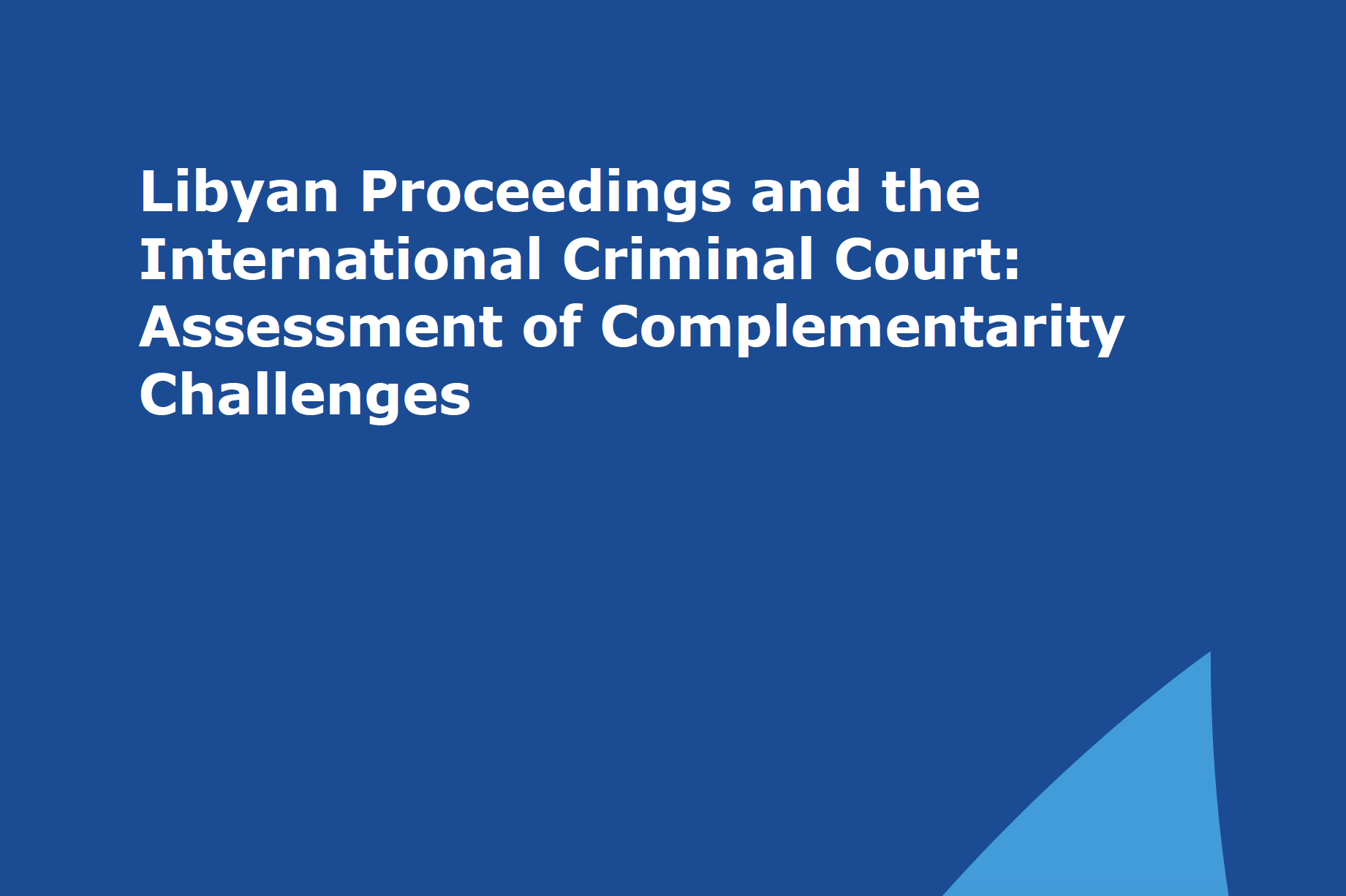In a briefing paper analyzing complementarity challenges between Libyan proceedings and the International Criminal Court (ICC), the ICJ today called for full compliance with Libya’s obligations under international law to penalize, investigate and prosecute crimes under international law.
The ICJ calls for greater consideration to be given to fair trial violations and other shortcomings of the Libyan criminal justice system in the context of future cases and in any review of admissibility decisions before the ICC.
The briefing examines the standards applied by the ICC in determining the admissibility of the Libya-related cases, and assesses such standards in light of Libya’s obligations under international law and the findings of the ICJ’s report Accountability for Serious Crimes under International Law in Libya: An Assessment of the Criminal Justice System.
International fair trial standards are extensively violated in Libya, as testified by the case against 37 former Gadhafi officials, whose fair trial rights have been breached throughout the domestic proceedings.
Moreover, in prominent cases such as that concerning the 1996 massacre of 1200 prisoners in the Abu Salim prison, domestic courts failed to ensure accountability for crimes under international law by applying statutes of limitations.
The ICC has considered admissibility challenges brought by Libya in respect of the cases against Saif al-Islam Gadhafi (Muammar Gadhafi’s son) and Abdullah Al-Senussi (former head of the Military Intelligence), determining Gadhafi’s case admissible and Al-Senussi’s case inadmissible.
Warrants of arrest remain outstanding against Al-Tuhamy Mohamed Khaled (former head of the Libyan Internal Security Agency) and Mahmoud Mustafa Busayf Al-Werfalli (commander in the Al-Saiqa Brigade in the Libyan Arab Armed Forces), who are both at large.
“Libya’s criminal justice system is unable to ensure accountability for crimes under international law,” said Said Benarbia, the ICJ’s MENA Programme Director.
“To do so, courts should be able to operate free from fear or intimidation, and to apply laws that fully comply with Libya’s obligations under international law, including those on fair trial rights.”
The briefing highlights that, in addressing the admissibility of cases before the ICC, full consideration should be given to whether Libya fulfils its international obligations in terms of penalization of crimes under international law and guaranteeing that domestic proceedings are carried out in line with international fair trial standards.
“Until the Libyan proceedings are able to dispense justice consistent with international law and standards, impunity will continue to prevail in the country,” said Kate Vigneswaran, the ICJ’s MENA Programme Senior Legal Adviser.
“To contribute to dismantling such impunity, proceedings before the ICC should fully take into account and address fair trial violations and other obstacles that continue to impede the effective functioning of the Libyan proceedings.”
Contacts
Said Benarbia, Director of the ICJ Middle East and North Africa Programme, t: +41 22 979 3817; e: said.benarbia(a)icj.org
Kate Vigneswaran, ICJ Senior Legal Adviser, t: +31 62 489 4664, e: kate.vigneswaran(a)icj.org, twitter: @KateVigneswaran
Full English language briefing paper, in PDF: Libya-ICC assessment-Advocacy-Analysis Brief-2020-ENG
Full Arabic language briefing paper, in PDF: Libya-ICC assessment-Advocacy-Analysis brief-2020-ARA

